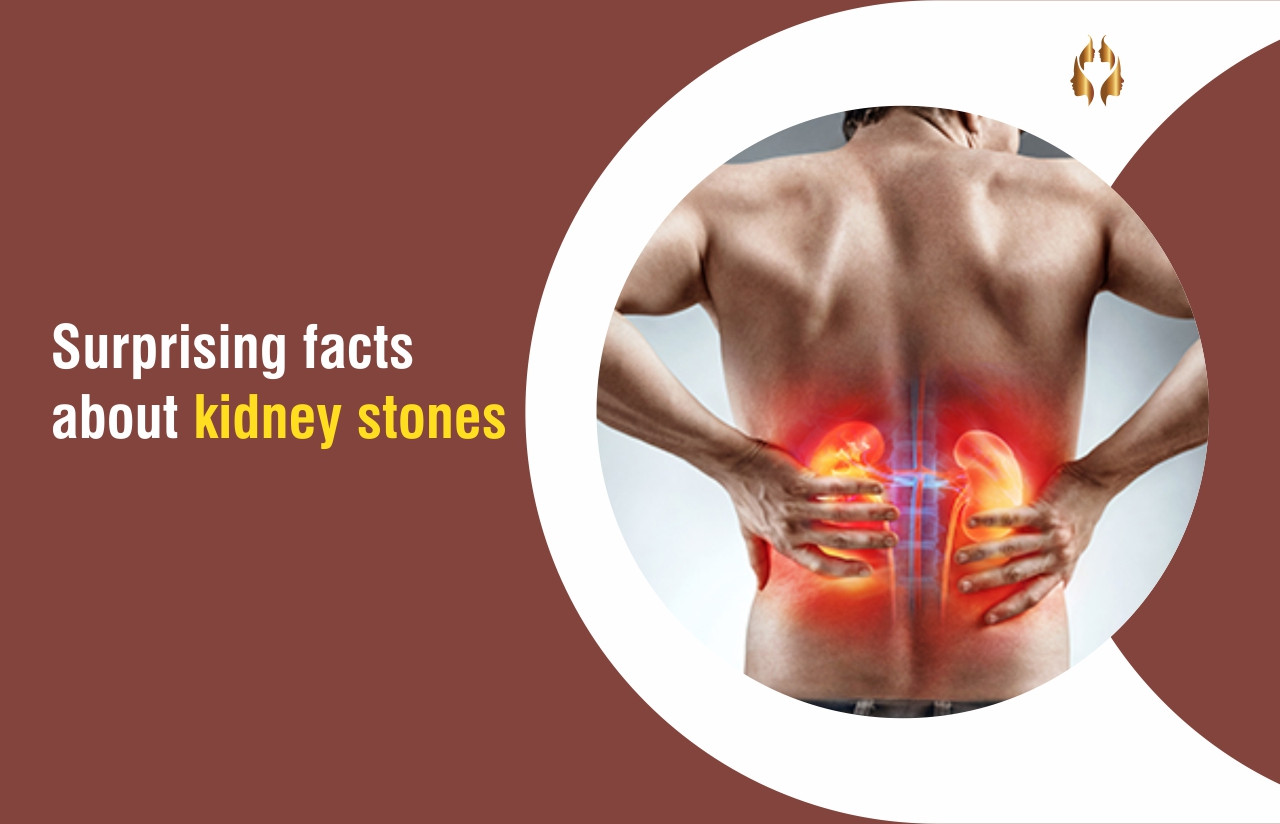Blog Details
Home > Blog > Blog Details

Surprising facts about kidney stones
When we think of kidney stones, we often associate them with excruciating pain. However, there's more to these troublesome little minerals than meets the eye. Let's uncover some surprising facts about kidney stones that could reshape your understanding of this common condition.
1. Not All Kidney Stones Cause Pain:
Believe it or not, kidney stones may silently reside in your kidneys without causing any pain. As long as they stay put, you might not even notice their presence. It's when they decide to make a move through the ureters that they start causing trouble, leading to symptoms like pain, bloody urine, cloudy or foul-smelling urine, nausea, chills, and fever.
2. Kidney Stones Can Grow Large:
Kidney stones come in various sizes, ranging from tiny grains of sand to rare golf ball-sized behemoths. The size of a stone determines the intensity of the discomfort it can cause, especially when it needs to navigate the narrow ureters. Although larger stones may not typically inflict permanent damage, they can lead to serious complications if they obstruct the urinary tract, elevating kidney pressure and potentially resulting in kidney damage.
3. Kidney Stones Are Not Age-Discriminatory:
While men are more commonly affected, kidney stones don't discriminate by age. Research indicates that by the age of 70, approximately 1 in 11 individuals will have experienced kidney stones. Surprisingly, even children as young as 5 years old have been diagnosed with kidney stones.
4. The Link Between Diabetes and Kidney Stones:
Health conditions such as diabetes, obesity, and urinary tract infections can elevate the risk of kidney stone formation. Managing chronic diseases and adopting a balanced diet with ample fluid intake can mitigate these risks.
5. Salt: The Culprit in Stone Formation:
A diet high in salt, sugar, and animal protein significantly increases the risk of kidney stones. Salt, in particular, inhibits the body's ability to absorb calcium, leading to elevated urinary calcium levels and, potentially, kidney stones.
6. Water: The Ultimate Defense:
Kidney stones form when urine becomes overly concentrated with minerals. Inadequate water or fluid intake contributes to elevated mineral levels in the urine, fostering stone formation. Drinking plenty of water helps flush out minerals, preventing crystal formation.
7. Calcium Is Not the Villain:
Contrary to popular belief, consuming a normal amount of calcium does not heighten the risk of kidney stones. Instead, excessive salt intake hampers the body's calcium absorption, leading to increased urinary calcium levels and potential stone formation.
8. Summer Stone Risk:
Kidney stone risk surges during the summer, primarily due to increased water loss through sweating in hot weather. If you fail to replenish lost fluids with adequate water intake, your urine becomes concentrated, heightening the likelihood of stone formation and urinary tract infections.
9. Kidney Stones: A Recurring Tendency:
If your body has formed kidney stones once, it's likely to do so again. Identifying the stone type and modifying your diet accordingly, along with increased water intake, can reduce the risk of recurrence.
10. Shattering Stones with Shockwaves:
Extracorporeal Shock Wave Lithotripsy (ESWL) is a non-invasive procedure to treat kidney stones too large to pass through the urinary tract. Shockwaves are used to break the stones into tiny fragments, allowing them to be easily eliminated through urine. ESWL helps prevent large stones from causing severe complications.
Remember, kidney stones are common, and they can affect people of all ages. You can minimize your risk through a healthy diet and adequate hydration, primarily with water. If you do experience symptoms of kidney stones, don't be alarmed. Consult our experts for the best treatment options. Pain relief, along with hydration and dietary adjustments, can help you conquer kidney stones.
Contact MMRV Multispecialty Hospital for expert guidance and treatment options.
CONTACT US
Book for Consultation
If you got any questions, please do not hesitate to send us a message. We reply within 24 hours.
24 Hours Service
You can call us any time of the day to fix up your appointments with us to clarify your concerns regarding procedures.